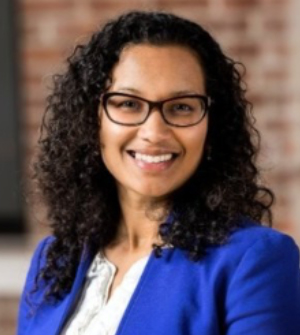The Case for Reparations and Investment in Education
Our failures to effectively invest in education has only deepened the need for reparations, says Tammy Tai of King Boston
October 26, 2021
The call for reparations has strengthened over the last year as our country reckons with the legacy of slavery laid bare over these past 18 months. King Boston believes that a deep examination of the education of Boston’s Black students is a critical step in this movement.
The National Coalition of Blacks for Reparations in America (N’COBRA) identifies education as one of five key injury areas suffered by African people before and after enslavement. The denial of the right to training began in bondage with criminal punishment upon any individual who learned or helped that individual to study. Government sanctioned support for separate and inconsistent education from post-slavery to the present resulted in sub-par training.
In Boston, a legacy of city-sanctioned policies and practices continues to disproportionately harm Black students today, producing and maintaining an apartheid educational system for the city’s Black students. In 2019, only 25 percent of 3rd-8th grade Black students were reading at grade level, compared to 62 percent of white students. Similarly, only 21 percent of Black students met or exceeded expectations on the Math MCAS in contrast to 62 percent of white students.
These large performance gaps have devastating consequences: students who are not proficient readers by 3rd grade are four times less likely to graduate high school. In 2020, there was a 9.3 percent 4-yr high school graduation gap between white and Black Boston Public School students. This gap has profound consequences for the life outcomes and well-being of Black students: Black students who do not graduate earn $1 million less than high school graduates and earn $4 million less than if they had gone on to earn a college degree.
Over the last few decades, a series of court decisions and misguided government policies have led to increased re-segregation of Boston’s students of color into high-poverty, low-performing schools. As recently as 2019, 77 percent of Black students and two thirds of all students of color attended “intensely segregated,” high-poverty schools in Boston. These same schools received $1,000 less funding per student when compared to schools with low concentrations of students of color.
Our poor track record around the education of our Black children is deeply disturbing. There is more research than ever documenting both the negative impacts of segregated school settings and the positive impacts of integrated learning environments on Black children’s educational opportunities, achievement levels, postsecondary success, and life outcomes.
We know that Dr. Martin Luther King, Jr. would stand with us in our fight to correct centuries of harm that has flowed from the legacy of slavery and Jim Crow segregation in our nation and Commonwealth. In a 1967 interview Dr King said, “I believe we ought to do all we can and seek to lift ourselves by our own bootstrap... But it’s a cruel jest to say to a bootless man that he ought to lift himself by his own bootstraps, and many Negroes by the thousands and millions have been left bootless as a result of all these years of oppression...”
We encourage the Boston City Council to establish a local commission for further study of the ongoing impacts of slavery and Jim Crow segregation here in Boston, towards the design of a local reparations program. With many partners, King Boston is working on a comprehensive harm report that provides deeper analysis around a number of all the topics related to reparations, including education. We look forward to sharing the report to help inform during this essential examination.
The Boston City Council’s Committee on Civil Rights heard testimony on Tuesday, October 26, regarding reparations for slavery in the City of Boston. The above was taken from Tammy Tai’s testimony to the committee.

